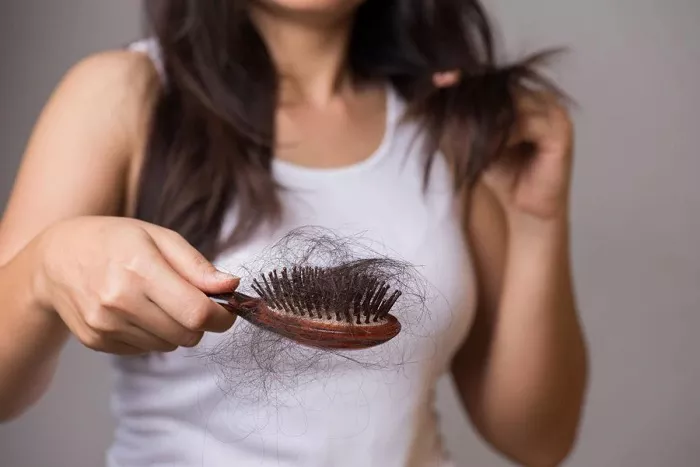A good hair day can feel like a confidence booster — but for the up to 40% of women who experience noticeable hair thinning by age 50, those days become increasingly rare. The good news? More treatments than ever are available, and early intervention can make a big difference.
When to Seek Help
Seeing extra strands in your brush, noticing a widening part, receding hairline, or bald spots? These are signs it may be time to talk to a specialist.
“Most patients don’t present to their doctor until they’ve lost about 50% of their hair,” says Dr. Michael Brandt, a facial plastic surgeon and hair restoration expert at Form Face + Body. “They just don’t notice it.”
But catching it early gives you far more options for treatment — and a better chance at regrowth.
Who to See
Dermatologists – particularly those specializing in hair loss.
Trichologists – experts in scalp and hair disorders (non-medical).
Hair restoration specialists – for advanced or surgical options.
Treatment Options for Hair Loss in Women
1. Topical Treatments
Minoxidil (Rogaine): The only FDA-approved topical treatment for female pattern hair loss. Helps to stimulate regrowth and slow shedding.
Serums with peptides, caffeine, or botanical ingredients: Boost scalp circulation and may support healthier follicles.
2. Oral Medications
Spironolactone: A hormone blocker used to reduce hair loss related to androgens.
Finasteride: Less commonly used in women but sometimes prescribed off-label.
Nutritional supplements: Iron, vitamin D, zinc, and biotin – if you’re deficient, this can impact your hair.
3. In-Clinic Treatments
PRP (Platelet-Rich Plasma): A treatment involving injections of your own platelets into the scalp to stimulate growth.
Microneedling: Often combined with serums or PRP to increase product absorption and stimulate collagen.
Low-Level Laser Therapy (LLLT): At-home or in-clinic red light devices that may encourage regrowth.
Hair transplants: Considered when other treatments are ineffective, especially for advanced loss.
Lifestyle Factors and Prevention
Stress management: Chronic stress can trigger or worsen hair loss.
Healthy diet: Protein, iron, and essential fatty acids support hair health.
Gentle styling: Avoid tight hairstyles, excessive heat, and harsh chemicals.
Bottom Line
With more treatment options than ever and growing awareness, women facing hair loss now have a path to both regrowth and confidence. If you’re noticing signs, don’t wait—early action can mean a fuller future for your hair.
A combination of medical guidance, at-home care, and lifestyle adjustments can help restore not only your hair, but also your peace of mind.
Related Topics:
- Black Women Demand Ban on Toxic Hair Products Linked to Cancer
- Hair Medical Services Market Booms Amid Rising Consumer Awareness
- Chlorine-Proof Hair Health Tips Every Blonde Should Know This Summer


